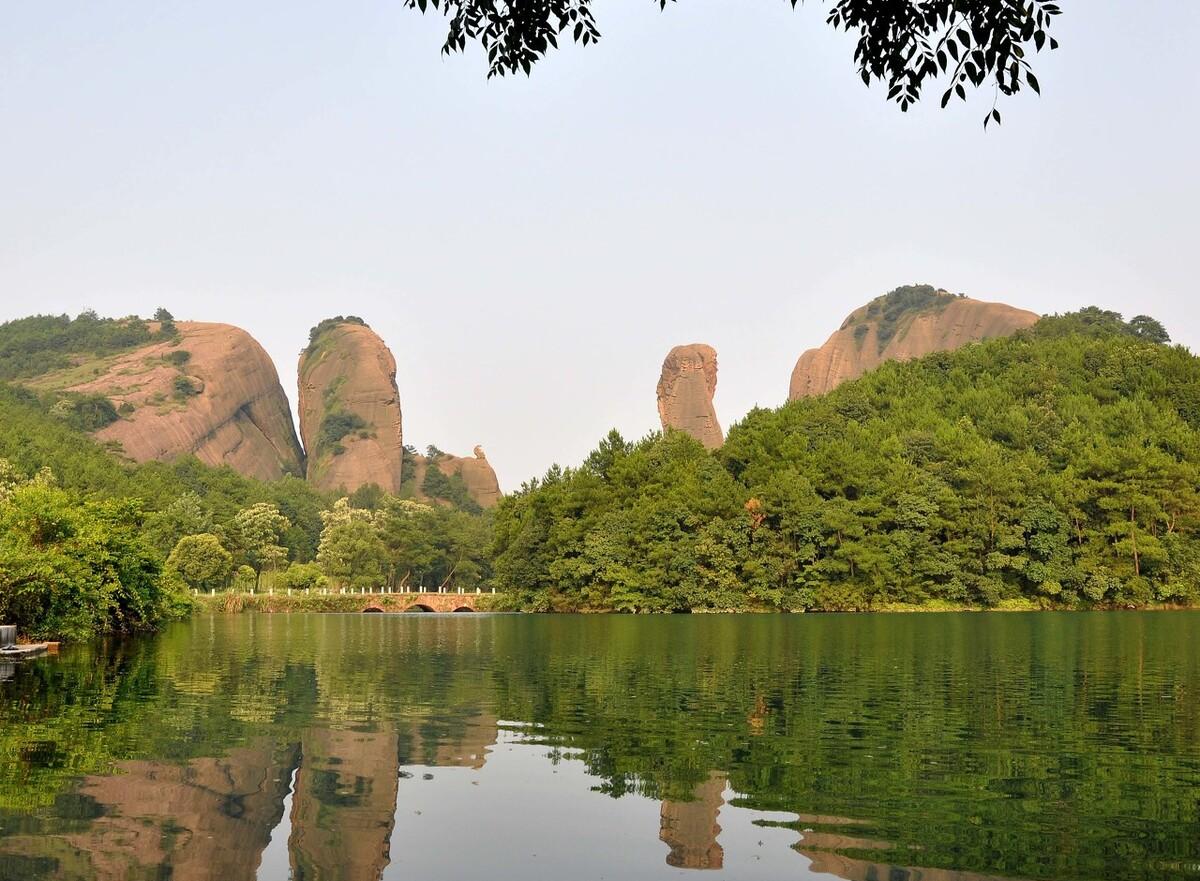
In Shangrao, Jiangxi, there is an ancient county seat called Yiyang County. From the Eastern Han Dynasty, it has a history of nearly 1800 years. But before Chengxian county, the starting point of martial arts had already begun here.
During the Spring and Autumn Period and the Warring States Period, China entered an era of talents, a hundred flowers blooming, and various schools of thought contending. The sabre is both a weapon and a work of art. It is also a symbol of the status of the admirer. At that time, Wu Chu became famous for his sword, and emissaries from various countries invited sword casters. Ou Yezi and Gan General were the best of the sword casting masters. The King of Chu invited two top sword casters to forge the World's Sword. The two searched all over the country, looking for places with iron, shining stones and cold springs, which were necessary conditions for forging swords. In the end, they stopped at Gexi in Yiyang and quenched their swords with the water of Gexi, and finally the King of Chu got the unique sword.
Also on the banks of this Gexi River, another great figure, the Taiji Immortal Ge Xuan, practiced Dan to cure diseases and save people here, and preached and received disciples. At this point, Taoism began to flourish in Yiyang. Ge Xuan was a good friend of Sun Quan, and Sun Quan was also a taoist believer. At that time, Shangrao belonged to Wudi, and Ge Xuan's behavior would have some possibility of preaching for the country. Ge Zhenren must have been a fairy wind crane bone at that time.
In the two Jin Dynasties, Buddhism entered Yiyang, and Yiyang formed a unique temple shape because of the Danxia landform, and carved Buddha statues according to caves. Here the largest reclining Buddha in China, the South Rock Reclining Buddha, was excavated. It is 416 meters long and 68 meters wide. Nowadays, the Guifeng Scenic Area of the 5a Scenic Area once had The Guifeng Temple and the well-known Liantang Temple. Under the scenery of the Danxia landform, the Buddhist incense of Yiyang was once exuberant.
The great hero is for the country and the people. Xie Dieshan, who was born in Yiyang at the end of the Song Dynasty and the beginning of the Yuan Dynasty, and Fang Zhimin, who was 600 years apart, had the confucian integrity when facing the enemy, as well as the chivalrous spirit of righteousness and thin clouds, and generous martyrdom. These are inseparable from the Dieshan Academy, which stands on the edge of the Xinjiang River, and the academy is the spring of the magnificent qi. 600 years are still alive and well, never drying up.
According to legend, Yiyang's Yiyang Cavity Quyi was created by the Taoists, which is too exaggerated by the Taoist practice. However, from the side, we can explore the solemnity and richness of Taoist music and Taoist rituals in that year. As one of the national intangible cultural heritages, Yiyang Cavity is a softening of opera, dialects and various religious music, after hundreds of years of tempering, it has become a national-level populist. Just like the Ou Yezi Water Quenching Sword in those years, the Peerless Sword was reborn by many top resources in the state of heaven, place, and people. There is also the divine medicine of Ge Xuan's alchemy furnace.
Yiyang also has a treasure, rice cake, also called Dahe rice rice. It is made of Yiyang Dahe grain rice as raw material and made by the unique process of "three steaming and two hundred hammers". First of all, Dahegu is a characteristic japonica rice fine seed between glutinous rice and indica rice, which is neither as sticky as glutinous rice nor as tough as ordinary indica rice, and it is this fusion, the state of moderation, that has achieved unparalleled raw materials. Then there are three steamed two hundred hammers. The person who can make a hammer and get two hundred hammers in one go must also be a martial artist. Xie Dieshan and Fang Zhimin had eaten the same flavor of rice cakes. The rice cakes on the Shrine and the rice cakes in the Palace Temple must also be as white as frost, transparent as jade, and not sticky or greasy. At that time, Fei Hong, the first assistant of the Ming Dynasty, visited Guifeng Temple from Lead Mountain to Yiyang, and it is said that it was this rice cake with three hundred hammers that entertained the vips.
In the world of martial arts, the sword is the martial soul. Serving the country and the people is the faith of the great hero, and the three mountains of faith are Confucianism.